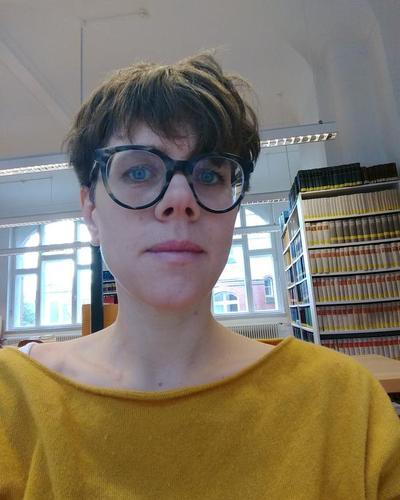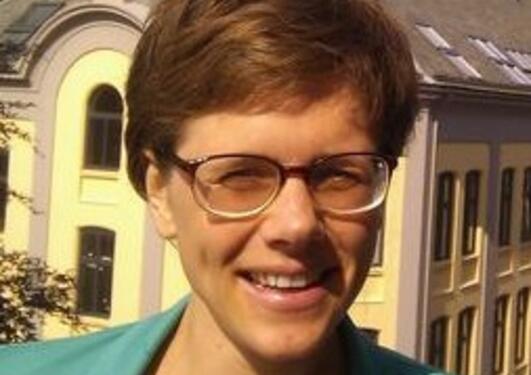WAIT researcher Kari Anne Drangsland
PhD candidate Kari Anne Drangsland has contributed to the WAIT project with ethnographic field research in Hamburg, Germany.
Main content
In this brief outline, she answers a few questions about her role in the project.
Perhaps a personal question, but is there something from your own life that stands out to you when talking about waiting or «struggle for time»?
The first experience of waiting that comes to my mind, and that might express something valuable about waiting and time more generally, is related to my role as a mother. When my son got diabetes at the age of two, our (the parents) days and nights got structured by new intervals of waiting. This reconfigured my own sense of time, and I believe triggered my academic interest in time. From the day he was diagnosed, the temporal structure of our days and nights was formed by reoccurring periods of waiting of very short duration: the seconds one had to wait while the measuring equipment calculated the sugars in the blood. In this period of waiting the question waved through: Did the amount of insulin we gave some minutes or hours ago fit the amount of carbohydrates, his activity level and the levels of the various hormones in his body so that a non-harmful sugar-level was reached? In these dense seconds, a future horizon or longer time line also was entangled, that is, that of my son’s organs, kidneys, eyes, heart and toes, as I knew the damaging effect of every high blood sugar level (long-term harms of Diabetes I often appears after 20 years). Thus, these seconds made a dense and affective timespace of waiting. When we later got new technology, which constantly monitored his blood sugar, time was restructured again. This experience has been a point of departure for me to think about how peoples’ experience of time and waiting can change for example when people fall sick or with new technologies. Also, it relates to how waiting is a meaningful and saturated, affective and bodily experience. In these short intervals, future and present, growth and decay weaved together.
How did you become a part of the WAIT research team?
I read about the project in a University paper, and since I have worked with issues of migration and generally been interested in questions of time I saw it as a most interesting and important project. When the PhD position was announced, I knew I wanted to apply.
Do the ethnographic and theoretical approaches resonate with any of your previous research or experience?
As a geographer I had been working to a certain extent on questions of time, which is a core subject within geography as discussed for example by Doreen Massey. Yet, the possibility to engage more thoroughly with questions about time, temporality and waiting, and doing this from a feminist perspective, has been very interesting. I have been working with migration and bordering as a consultant and lecturer for some years, and I am very happy to be able to work with such questions in an academic long-term project.
What are the main challenges for you in this particular project? Are there any limitations, or has it changed the way you approach topics in your research?
There are different sorts of challenges. There are the political and ethical challenges of working in the field of (irregular) migration and doing fieldwork, something I could elaborate more about. Also, there are the academic challenges of becoming a (gender) scholar, which was a new field to me, although I have worked with feminist geographies and planning before. The same goes for thinking time beyond dominant models of linear temporality, which has been a challenging, but a wonderfully exiting endeavor.
I am not able to put into words yet, all the things I learned through fieldwork and spending time with people in Hamburg. I am still trying to make sense of that to myself. I am glad to have the support of thoughtful colleagues in the project, which make room for reflections and engagement with the ethical and political dimensions and questions brought up by the project.
Migration is a very "hot topic" in academia, across various disciplines. What do you think makes the WAIT project stand out?
I am more interested in how WAIT makes an important contribution. It stands out for me, because of the theoretical, ethical and political engagements within the research team related to questions of bordering, migration and time. Indeed, I want to highlight the research’s focus on questions of time, which has often been treated more superficially in migration and border scholarship. I find that to be an immensely valuable part of the project.
Can you give some examples of your own critical reflections that have surfaced during the project period?
As a geographer and on a more analytical and theoretical level, I want to underline the fruitfulness of thinking space and time in relation to each other and thinking relationally. I have really learned a lot so far in the project. I have discovered the usefulness by approaching the issue of time from feminist and queer engagements with time, which were rather new fields to me when I started. I have also reflected much on how the predicaments of migrants’ waiting articulate with capitalist and biopolitical imperatives of the state – which is highly visible in the German context. My project has come to be centered around events of waiting that appear as produced through promises by the state of future inclusion (through regulations and legalization schemes) to migrants that manage to prove themselves 'economically useful'.


